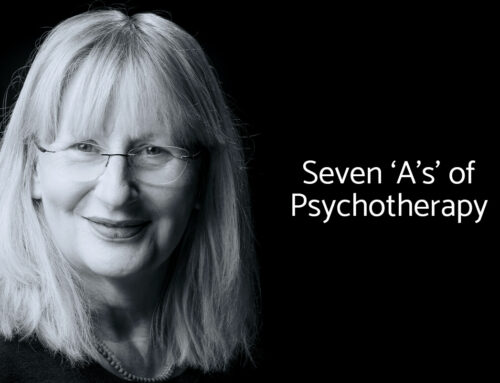The inner child is a helpful concept for describing some of what happens in psychotherapy. So who is your inner child? Do they even exist? Here is my perspective from my years in clinical practice.
The inner child could be described as the blueprint of who you were before the world – and your parents – influenced you to make you fit in. There is a widespread agreement that young children need to be moulded and directed in order to fit in and behave acceptably. However, the child is also a being in their own right, someone who, although vulnerable and in great need of protection, is a natural, sensitive, intelligent, curious being who is predisposed to give and receive love – and many children have a lot of fun and joy within them. The child does not have any concepts about how to be good, but it is fascinated by the people around it, and easily becomes attached to them.
The young child has innocence – purity of heart – very intense emotions and the ability to express them freely, and an inbuilt creativity and curiosity that leads to exploration. Many children also have great vitality and energy. Parents cannot always cope with this bundle of energy, intense emotional expression, curiosity, the expectation of being loved and their physical needs met at all times. At some point there can be ruptures in the child’s relationship with its carers and immediate environment, as the child’s needs and wants cannot all be perfectly met.
As the child matures, they want to feel loved unconditionally, secure and safe, and they want to feel seen, known, recognised, heard and understood. They want the adults to be unconditionally available and all-accepting. The adults see it differently. They are preoccupied with their own lives, exhausted by constant childcare and lack of sleep, worried about finances and other problems, and with a thousand things they must do. Being attentive to the needs of a growing child often gets limited to a clean home and clothes, food on the table, getting to places on time, and providing passive entertainment. As the child experiences it, aspects of their being are rejected, and they become sensitised to feeling rejected.
Locked into a small nuclear family, and often restricted indoors, the child may not have others to turn to, and the influence of the parents may not be balanced by much contact with a wider community, or with playing freely outdoors. This situation is difficult for the child in ways that may not be visible to the adults, and which may not become recognisable before the child reaches puberty as the child has no words to say what they feel. If there is abuse or over-control, things are much worse for the child – betrayals of trust, shouting at the child, over-control combined with emotional neglect, the lack of a safe, aware protecting adult, or an adult who is either out of control or exploiting the child. Whatever is the situation in these early years of childhood, the child experiences powerlessness and helplessness, and this experience can stay with them over a lifetime.
Unmet and unrecognised needs can accumulate and result in developmental delays and arrests. Some aspects of development stop when needs that are important for the child – but are not necessarily even seen by the adult – are not met. Many adults carry some developmental delays within them, which may underlie some persistent difficulties in life. Examples could include difficulty in decision making, not knowing who to trust or when it is appropriate to trust someone, feeling that their wishes, desires and passions are unimportant and do not matter, and either suppressing their own feelings, or acting out their feelings in destructive ways. These daily manifestations are not recognised as deep feelings of abandonment and neglect that could be healed, as the person is more likely to think this is “just me” when they have difficulties in areas of life that other people seem to manage more easily. In therapy you make connections between various different, apparently separate difficulties and bad feelings, and childhood experience. This enquiry goes deeper than “my childhood was fine, there is nothing much to talk about/I can’t remember much about it”.
People starting to open up in therapy sometimes feel afraid that if they get in touch with their true feelings, they will be out of control or overwhelmed. They may have some complex symptoms which indicate a need to feel in control of difficult, unmanageable feelings and conflicts from childhood. They may make bad decisions, feel unhappy for no reason, miserable, bored, low energy, and everything is flat, dull, heavy or hard work. Or they have mood swings and feel unsafe and unstable. They know they are not functioning at the level they are capable of, but do not know how to get there. This is a point at which it can be helpful to introduce the idea of the inner child – the child who lives on within the adult, who is still acutely aware that something is not right, that no one has ever really helped, and they feel just as helpless about this as a child might, who has no one to help them.
There are some important reasons why psychotherapists are so interested in you getting in touch with your feelings. Feelings act as an inner guidance system and help with:
- Making independent decisions and choices in your own best interests, or for the highest good of all concerned
- Trusting your own intuition and common sense rather than relying on the opinions, judgements and influence of others
- Believing in yourself and trusting yourself (this is not the same as over-estimating your performance!)
- Understanding that mistakes are to be learned from, and not a reason to judge or condemn yourself
- They help you maintain an optimistic, constructive, creative attitude (not the same as having unrealistic expectations!)
When you are out of synch with your own feelings, you feel stuck with your feelings, or bad feelings keep repeating, you may:
- Have difficulty coping with intense anxiety or worry
- Engage in compensatory behaviours such as over-consumption
- Get caught up in repetitive symptoms
- Repeat the same unhappy relationships
- Feel bored, dispirited, flat, unhappy, miserable, angry etc, and you have no way to stop feeling bad except through addictions, extreme sports, sex, or distractions
So how does a psychotherapist work with the inner child?
Work with the inner child can be simply asking the inner child to speak, and listening carefully. Often what the inner child wants is to be heard, received, understood, and not left alone or abandoned. They need good, kind attention and simple acceptance. The psychotherapeutic relationship is a place where the child can be heard, valued and affirmed. This supports the person to begin to accept and integrate these aspects. It is most important that the inner child material is accepted with understanding, and with no criticism, judgement or negativity. Acceptance is key.
The adult now has to learn something new, which to begin with can feel very difficult and unfamiliar:
- To let aspects of themselves become visible, where they have been used to being invisible and putting the needs of others first
- To value themselves sufficiently to look after their needs and wants, and maintain themselves and their environment with love and care
- To allow themselves to feel the deep-down desires they long for, without immediately telling themselves they are unrealistic or impossible, and begin to take practical steps to follow them through
The recognition and acceptance of personal desires (not basic desires such as food or sex, but being-level desires) is a key to living a life aligned with who one really is, as opposed to fulfilling other people’s expectations of what you “should” do to please them, obey, meet their needs, or fit in. The inner child of each person is original and unique, and may not look like a “normal” person. The inner child aspect of each of us has gifts and talents, interests and passions that need to be expressed. These are persistent and never completely vanish even when you ignore them for a lifetime! These gifts may be hidden away, and through giving good attention to the wounding of childhood, these gifts, once neglected, can become a wonderful resource.

If you agree to listen to what your inner child has to say, and do not reject the feelings it has, you can find that at the back of those feelings there’s always an important message for you from your past – like a message sealed in a bottle that turns up on a foreign shore many years later. When you are able to decode this message, perhaps with the help of an understanding therapist, or in a journal, or with a trusted friend, a new chapter will open in your life.
When you are able to accept your feelings as an important part of you, and understand they are a legacy from the inner child who actually knew the truth of who you are, but had to put this away for safekeeping, then you can stop doing things that make you unhappy, and start doing things that would make you happy if you dared to do them!
This is where the adult part of you can make things over-complicated, and start to make deals and negotiations. The ego mind often has a lot of difficulty in trusting the sense of direction inspired by the inner child – “you can’t make a living doing that”, etc. These are two entirely different thought systems, and they don’t bargain with each other well. So you want to protect the inner child, and make your everyday life work at the same time.
The nature of the inner child is creative, curious, freedom-seeking, loving, emotional, passionate, fun and adaptable. Whereas the nature of the ego mind can be controlling, self important or believing it is right, driven by fear and safety, inflexible, follows pre-existing rules set in place by previous behaviour, prefers repetition and patterns, and is not in the least interested in making sound long-term decisions or in your deeper happiness. It is ruled by guilt and unworthiness, and believes it must be separate and alone. It tends to believe that life is meant to be a struggle and hard work.
As the balanced adult, you can find a way to mediate between these two incompatible mindsets. You have to put food on the table, pay the bills, keep everything ordered and clean, be loving and kind and support the wellbeing of everyone you’re responsible for… but you can do it from love and not “oughts and shoulds”. You can find a new balance so that feeling happy, making time to dream new ideas, relaxation, creativity, self expression, connection, fun and freedom are always included in your schedule!




